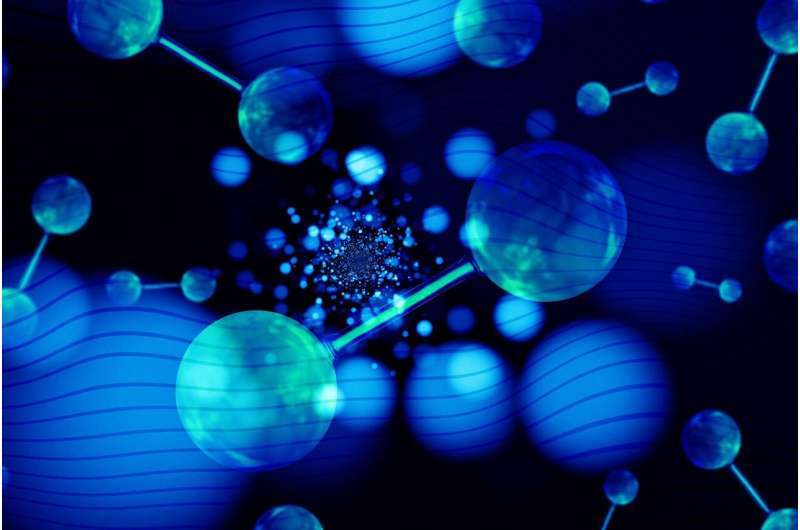
The race to make the widespread use of intermittent renewable energy a reality has taken a step forward with new research by experts from the University of Adelaide who are improving the efficiency of iridium-based catalysts.
“Currently it is difficult for commercial iridium oxide catalysts to achieve high activity and stability at the same time in proton exchange membrane water electrolysis (PEMWE),” said the University of Adelaide’s Associate Professor Yao Zheng, ARC Future Fellow, School of Chemical Engineering.
“We have found that a lattice-water-assisted mechanism—a way of arranging water molecules in a specific pattern—boosts the efficiency of an iridium oxide catalyst by 5–12%resulting in higher energy output while consuming less energy.
“Water splitting using PEMWE is a promising method for generating green hydrogen. However, only iridium-based electrocatalysts can be used as the element can withstand the harsh acidic conditions that occur during the reaction.”
Using renewable electricity is one of the most attractive solutions to producing green hydrogen especially using the PEMWE technique, which could be operated with fast response and high current density. Hydrogen has been described as the low-emission fuel of the future.
Iridium is one of the rarest elements on Earth. It is found uncombined in nature in sediments that were deposited by rivers. It is commercially recovered as a by-product of nickel refining. A very thin layer of iridium exists in the Earth’s crust. South Africa is the largest producer of iridium.
“As the global output of iridium is very limited, it is very important to decrease the amount used in these types of catalysts,” said Associate Professor Zheng.
“With the lattice-water-assisted oxygen exchange mechanism that shows the possibility of both higher efficiency and stability in a proton exchange membrane water electrolyser the amount of iridium can be reduced and the cost of producing green hydrogen can be efficiently decreased.
“Our findings not only verify the viability of a low-loading iridium-based anodic catalyst for PEMWE but also provide new ideas for modifying the oxygen exchange mechanism for high-performance oxygen evolution reaction (OER) catalyst design.
“With cheaper green hydrogen, a carbon-neutral society could be built as soon as possible, and related climate problems could be efficiently decreased.”
The team’s work has been undertaken at the fundamental level. Further research needs to be carried out on how to scale up the new synthesis. Their findings are published in the journal Science Advances.
More information:
Jun Xu et al, IrOx·nH2O with lattice-water-assisted oxygen exchange for high performance proton exchange membrane water electrolyzers, Science Advances (2023). DOI: 10.1126/sciadv.adh1718. www.science.org/doi/10.1126/sciadv.adh1718
Citation:
Higher efficiency catalyst could prove key to green hydrogen (2023, June 23)
retrieved 23 June 2023
from https://techxplore.com/news/2023-06-higher-efficiency-catalyst-key-green.html
This document is subject to copyright. Apart from any fair dealing for the purpose of private study or research, no
part may be reproduced without the written permission. The content is provided for information purposes only.
Stay connected with us on social media platform for instant update click here to join our Twitter, & Facebook
We are now on Telegram. Click here to join our channel (@TechiUpdate) and stay updated with the latest Technology headlines.
For all the latest Technology News Click Here
For the latest news and updates, follow us on Google News.
